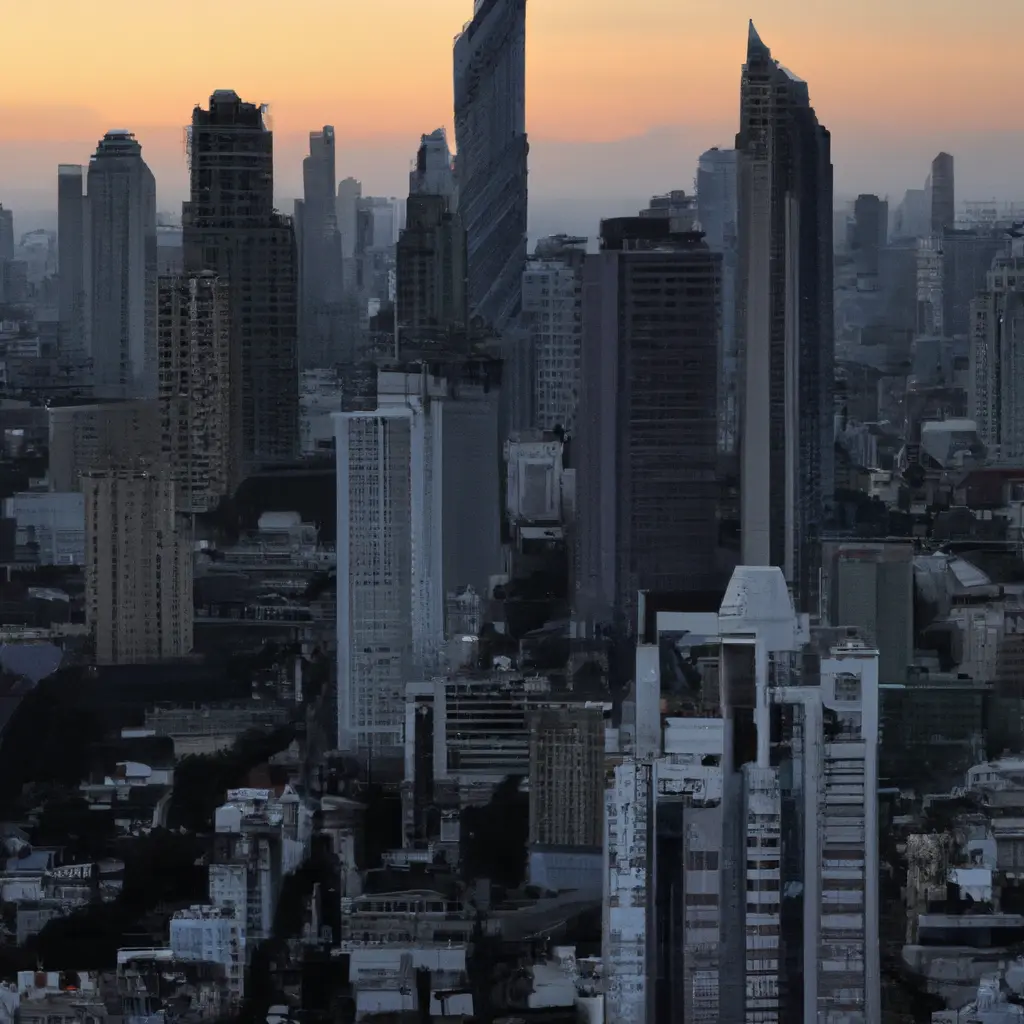The recovery of the real estate market in Thailand after the pandemic and under the threat of uncertainty due to the political situation.

More than three months after the parliamentary elections on May 14, a new cabinet government in Thailand has still not been formed, and the new Prime Minister Srettha Thavisin has not officially taken office. More than two-thirds of the country's real estate market value comes from the residential sector, where the law restricts foreign ownership. (REUTERS/Athit Perawongmetha) August 25, 2023, 10:35 AM BANGKOK:
The real estate market in Thailand
The real estate market in Thailand, a key sector of the country's economy, was expected to recover this year after a decline due to the COVID-19 pandemic. However, ongoing political uncertainty raises doubts about whether this will happen. More than three months after the parliamentary elections on May 14, a new cabinet government has yet to be formed, and the new Prime Minister Srettha Thavisin has not officially taken office. A multitude of unsold apartments and delays in launching new real estate projects in the capital, Bangkok, reflect the uncertain political situation in the country and growing disappointment in the economy, observers note.
KEY ENGINE OF THE THAI ECONOMY
The real estate market is one of the key drivers of Thailand's economy, contributing about 10% of the country's gross domestic product (GDP). Mr. Phattarachai Taweewong, Director of Research and Communications at Colliers Thailand, told CNA that "this is a moment of waiting and watching." "Most developers are postponing their decisions. The timing is not right to launch new projects during a political vacuum. If a company launches a new project, there is a chance it won't meet its sales targets," he explained. He noted that listed companies and developers in the country had planned to launch many new projects in the first half of this year, but the political situation forced them to adjust their plans. "We expected that new apartments would be launched in the metropolitan area of Bangkok, totaling about 45,000 new units. However, after the first half of the year with an uncertain political situation, only 12,000 apartments were launched," Mr. Phattarachai said.
The real estate market is one of the key drivers of Thailand's economy, contributing about 10% of the country's gross domestic product. Further delays in this sector will slow down Thailand's recovery from the pandemic.
13 May 2025
14 May 2025
Foreign real estate buyers
Meanwhile, foreign buyers have other issues aside from the political situation. By nationality, Chinese and Russian buyers make up the largest share of foreign homebuyers in Thailand. Chinese citizens typically purchase in Bangkok, while Russians find properties in Phuket appealing. Both groups have more long-term considerations, as their interests are tied to finding a second home outside their countries, real estate agencies told CNA. Ms. Artitaya Kasemawan, head of residential sales at CBRE Thailand, noted that today’s market is focused on end consumers rather than short-term speculators as in the past. "Some conservative speculators may take a wait-and-see approach. We believe that the main factors influencing real estate buyers' decisions are primarily economic rather than political," she said, adding that interest rates and mortgage approvals are key factors. "It’s always good when a government is formed because it strengthens the confidence of both locals and foreign buyers. But if the government has not yet been formed and the economy has recovered, then I think that also boosts buyers' confidence in the real estate market."
Industry representatives told CNA that they hope the next government will review the current policy in the real estate market and even introduce incentive measures.
Comment
Popular Posts
Popular Offers

Subscribe to the newsletter from Hatamatata.com!
Subscribe to the newsletter from Hatamatata.com!
I agree to the processing of personal data and confidentiality rules of Hatamatata














